Vietnam determined to move towards sustainable development
At the 2021 United Nations Climate Change Conference (COP26), Vietnam impressed the international community with its bold and determined commitments to respond to climate change, while opening up many opportunities to promote circular economic growth and sustainable development.
Vietnam is committed to achieving net zero emissions by 2050 through resource optimisation, technological transformation and mobilisation of international finance. This places an urgent requirement on businesses to comply with sustainable development standards.
Not only that, since 2020, Circular 96 of the Ministry of Finance has required listed enterprises to publish Sustainable Development Reports on their official websites to enhance transparency.
At the same time, Decision 167 of the Prime Minister issued in 2022 approving the "Program to support private sector enterprises in sustainable business for the period 2022-2025" and Circular 13 of the Ministry of Planning and Investment issued in 2023 provide specific guidelines on sustainable business.
These commitments not only demonstrate Vietnam's efforts in dealing with climate change but also affirm the country's role in global efforts for a green and sustainable future.

Prime Minister Pham Minh Chinh speaks at COP26 (Photo: VNA).
At the question-and-answer session on the morning of November 11, 2024, State Bank Governor Nguyen Thi Hong assessed that environmental protection is a very important issue in sustainable development and is of interest to countries around the world.
Regarding the State Bank, the Governor said that he has issued directives and documents to encourage credit institutions to focus resources on granting green credit. At the same time, he has implemented solutions to manage environmental risks when credit institutions grant credit, and perfected mechanisms and policies to contribute to achieving green growth goals.
"The State Bank has also issued action plans, assigned tasks to agencies and units in the system, implemented specific credit programs, contributing to the economical and effective use of green growth such as coordinating with the agricultural sector towards the target of 1 million hectares of low-emission rice," said a banking industry leader.
Promoting the economy towards green growth
Speaking at an event organized by the Ministry of Planning and Investment, Dr. Le Viet Anh, Director of the Department of Science, Education, Natural Resources and Environment, Ministry of Planning and Investment, said that the legal foundation for green growth in Vietnam is currently relatively complete.
Specifically, in 2022, the Prime Minister issued Decision 1658 approving the National Strategy on Green Growth for the 2021-2030 period, with a vision to 2050, and Decision No. 882 approving the National Action Plan on Green Growth for the 2021-2030 period.
On that basis, ministries and local sectors have proactively followed the national plan on green growth to issue action plans in their sectors and localities as well as monitor and urge the implementation of green growth solutions.
Mr. Viet Anh also shared about 3 important focuses to promote the economy towards green growth.

Vietnam's legal foundation for green growth is currently relatively complete (Photo: Shutterstock).
The first is to perfect the legal framework for green growth, of which the most important is to provide a set of criteria for green classification and a system of green economic sectors. This classification system is especially important for countries with a green growth orientation.
"If we cannot determine which behavior, activity, or economic sector is called green, all policy mechanisms cannot have a clear applicable legal framework," Director Le Viet Anh emphasized.
Accordingly, the Ministry of Planning and Investment has submitted to the Government a proposal to allow the construction of a green economic sector in the form of legal documents to be applied to the entire economy. This green economic sector system is built on the basis of referring to green guidelines from Europe, Singapore, China, etc.
This industry system needs to adhere to international standards that apply globally. For example, Europe has adopted rules on cross-border carbon management, which are universal and must be followed by all parties. If Vietnamese goods want to enter the European Union, the green standards must be the same. The green classification system must meet international standards while also being suitable for the characteristics and circumstances of Vietnam.
Second is to pilot incentive mechanisms for green projects. The Ministry of Planning and Investment has proposed that the Government issue specific incentive mechanisms for green projects along with proposals for pilot green projects. This is extremely necessary because when there is no common framework for green growth, management agencies need to intervene in a pilot manner to evaluate and learn from experience.
Currently, this management agency has compiled a preliminary list of a number of projects proposed by ministries, localities and investors, along with preferential policies. The Ministry of Planning and Investment also proposed a certain subsidy mechanism for pilot projects to overcome administrative and capital barriers. Based on the summary of pilot projects, the Ministry will continue to propose policies for widespread pilot application.
The third is to raise awareness and raise awareness of businesses and people. One of the important goals is to green lifestyle and consumption. How to make each behavior of each person and business aim to minimize greenhouse gas emissions. The representative of the Ministry of Planning said that it was assigned to coordinate with ministries and branches to deploy, monitor, evaluate, and replicate good models in implementing green and sustainable lifestyles.
"Of course, with this lifestyle, consumers need to pay a slightly higher fee than normal goods, but this is part of the social responsibility of people and businesses," Mr. Viet Anh shared. He also said that the Ministry of Planning and Investment will propose that the Government subsidize goods and services aimed at green growth.
Businesses must consider ESG as a compass
From the perspective of an export-oriented enterprise, Mr. Phan Van Viet, Vice President of the Ho Chi Minh City Textile, Embroidery and Knitting Association, said that currently, enterprises must consider ESG as a guideline for import-export enterprises.
"Because now, this is a requirement of the whole world, not just in Vietnam. For textile and garment enterprises, they have started implementing ESG criteria on environment, society and governance since signing Free Trade Agreements (FTAs)," he said.
According to this person, in international trade agreements, many countries require very high ESG criteria. For example, when designing a product, businesses must choose environmentally friendly and recyclable materials...
Similarly, Dr. Le Thai Ha, CEO of VinFuture Fund and Green Future Fund, also believes that businesses need to seriously implement ESG because this is not only a social responsibility but also a vital factor in sustainable development.
"When ESG is implemented properly, businesses not only increase their reputation, attract and retain talent and potential customers, but also build a solid foundation to cope with future risks," the expert affirmed.

Dr. Le Thai Ha, Executive Director of VinFuture Foundation, Fund for a Green Future (Photo: Manh Quan).
On the contrary, Ms. Ha believes that if done carelessly, not only will these benefits be lost, but it can also negatively affect the reputation, image and long-term business performance of the enterprise.
Mr. Nguyen Trong Hien - Chairman of Gelex - said that business activities are closely linked to economic development and cannot be separated from environmental - social - community factors. The company understands and believes that the ESG strategy helps Gelex build long-term value and public trust to go further and reach higher.
While every business sets ESG goals, Gelex does not see it as a race. The Group lives with ESG every day, to gradually build a solid foundation for the business. Through that, Gelex promotes core values and fulfills its mission to shareholders, partners, customers, employees and the community.
Gelex's goal is not only to increase revenue, profit, expand market, and scale, but also to ensure profit optimization, rational use of resources, and sustainable development. The company focuses on core industries such as electrical equipment, construction materials, energy and clean water, industrial parks, and real estate.
In addition, with a comprehensive welfare regime, a civilized and safe working environment, and a balance between work and life, Gelex is committed to creating favorable conditions for the sustainable development of individuals and organizations.
Gelex is committed to continuous innovation in corporate governance and corporate governance according to standards to maintain sustainable development and enhance competitiveness. The company constantly improves management processes and applies technology to optimize production and business activities. At the same time, it focuses on strengthening risk management, transparent information disclosure, data management, and safety and security.
Meanwhile, at banks, for example, Agribank has developed an ESG Action Plan with a focus on prioritizing green project financing and excluding environmentally harmful industries. The bank has promoted credit for renewable energy, clean agriculture, and supported small businesses in accessing sustainable capital, especially in rural areas.
At Eximbank, this unit focuses on transparent governance, developing high-quality human resources and applying technology to management and business. The bank actively develops green credit, controls environmental risks in credit granting, and encourages the use of environmentally friendly digital banking services and builds green offices throughout the system.
However, Mr. Phan Van Viet acknowledged that currently, Vietnamese enterprises, especially those in the textile and garment industry, are still confused in planning step-by-step implementation of ESG.
"Meanwhile, implementation solutions must be synchronous in terms of investment in environment, technology, and human resources. In particular, many businesses are facing the problem of technology deficit and lack of investment capital," Mr. Viet stated the current situation.

ESG awareness and practice levels of businesses (Graph: USAID).
According to the 2024 Environmental, Social, and Governance (ESG) Framework Assessment Report by the Department of Enterprise Development and the Ministry of Planning and Investment, sustainable development activities and ESG reporting have received strong support from foreign-invested enterprises (FDI) and large listed enterprises, but have not yet spread widely to all sizes of Vietnamese enterprises.
Businesses face difficulties in implementing ESG due to lack of knowledge and resources, especially micro, small and medium enterprises, which account for 97% of the economy but lack the necessary support.
In addition, the lack of comprehensive data due to recent studies focusing mainly on large corporations has limited the ability to understand the real situation and develop appropriate supporting policies for ESG adoption on a national scale.
Although Vietnam’s economy is on the rise with a steady increase in FDI inflows, issues such as environmental pollution, vulnerability to climate change, and lack of comprehensive ESG policies remain threats to the country’s long-term development strategy.
Unsynchronized implementation not only increases risks for businesses but also affects Vietnam's reputation in the international arena, causing the country to lose opportunities to attract strategic capital sources and potential trade partners.
Integrating ESG into business operations is a necessary direction for Vietnamese enterprises to enhance their brand image, build a solid governance structure, optimize resource use and minimize risks. As a result, enterprises can shift from rapid growth to sustainable growth, ensuring long-term benefits for the economy and society.
Source: https://dantri.com.vn/kinh-doanh/huong-toi-mot-tuong-lai-ben-vung-viet-nam-quyet-tam-hanh-dong-20241123100504631.htm


![[Photo] General Secretary To Lam and international leaders attend the parade celebrating the 80th anniversary of the victory over fascism in Russia](https://vphoto.vietnam.vn/thumb/1200x675/vietnam/resource/IMAGE/2025/5/9/4ec77ed7629a45c79d6e8aa952f20dd3)
![[Photo] Prime Minister Pham Minh Chinh chairs a special Government meeting on the arrangement of administrative units at all levels.](https://vphoto.vietnam.vn/thumb/1200x675/vietnam/resource/IMAGE/2025/5/9/6a22e6a997424870abfb39817bb9bb6c)


![[Photo] Russian military power on display at parade celebrating 80 years of victory over fascism](https://vphoto.vietnam.vn/thumb/1200x675/vietnam/resource/IMAGE/2025/5/9/ce054c3a71b74b1da3be310973aebcfd)





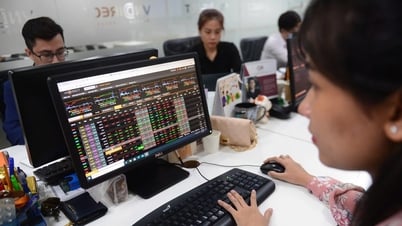
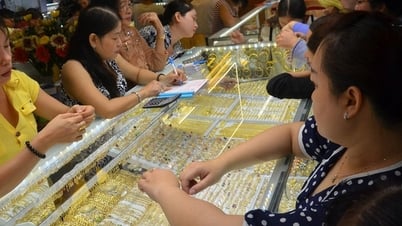









![[Photo] Magical moment of double five-colored clouds on Ba Den mountain on the day of the Buddha's relic procession](https://vphoto.vietnam.vn/thumb/1200x675/vietnam/resource/IMAGE/2025/5/9/7a710556965c413397f9e38ac9708d2f)


































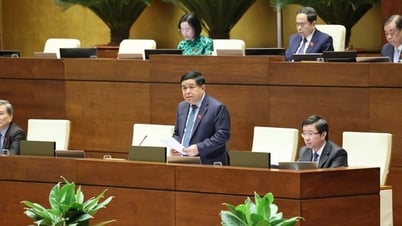

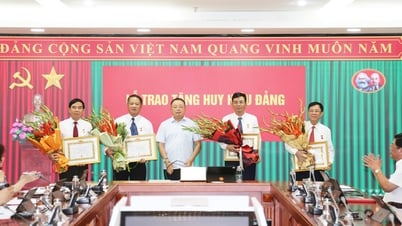







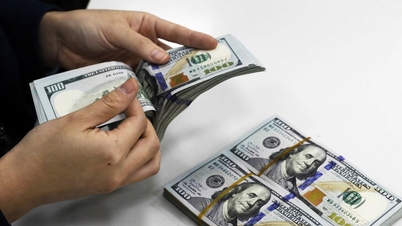
















Comment (0)